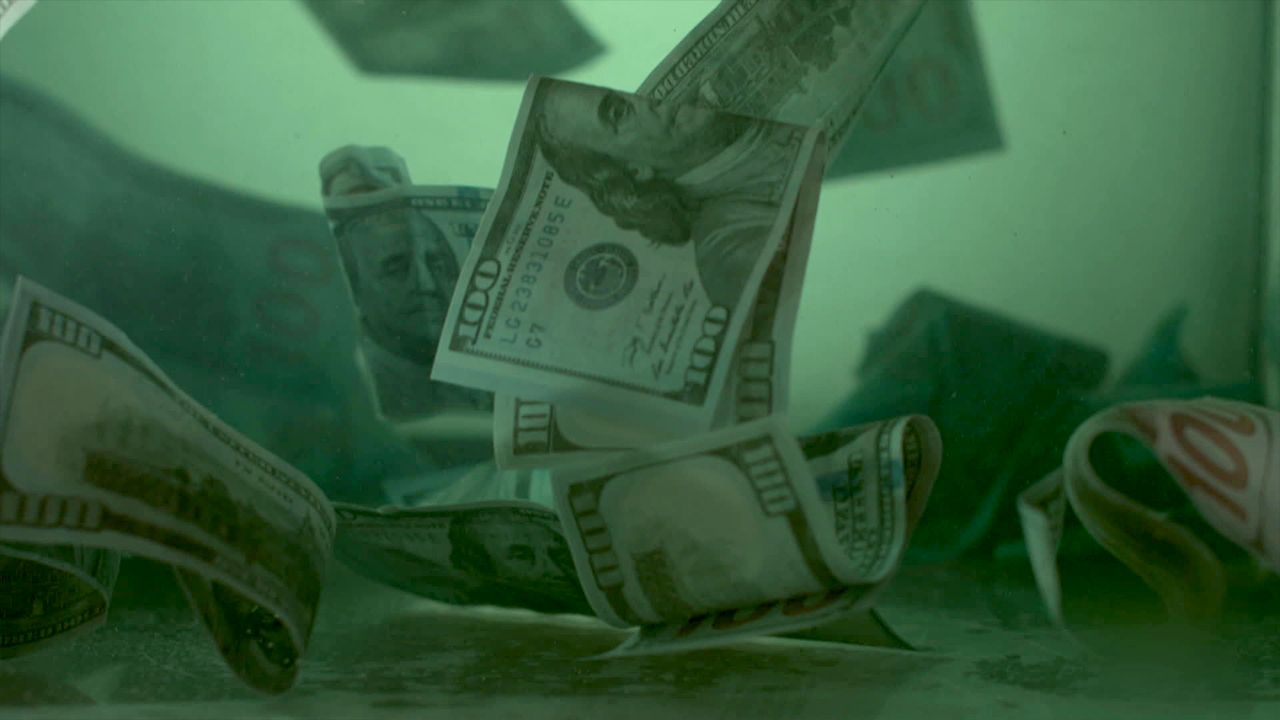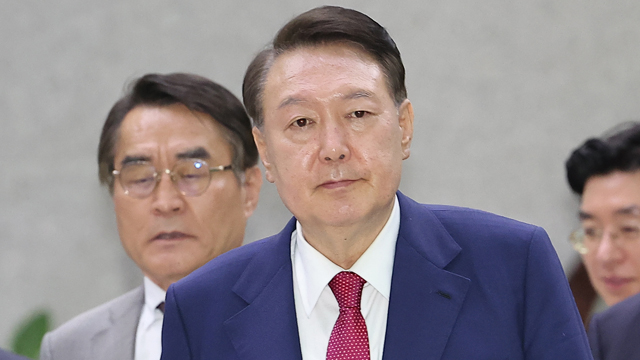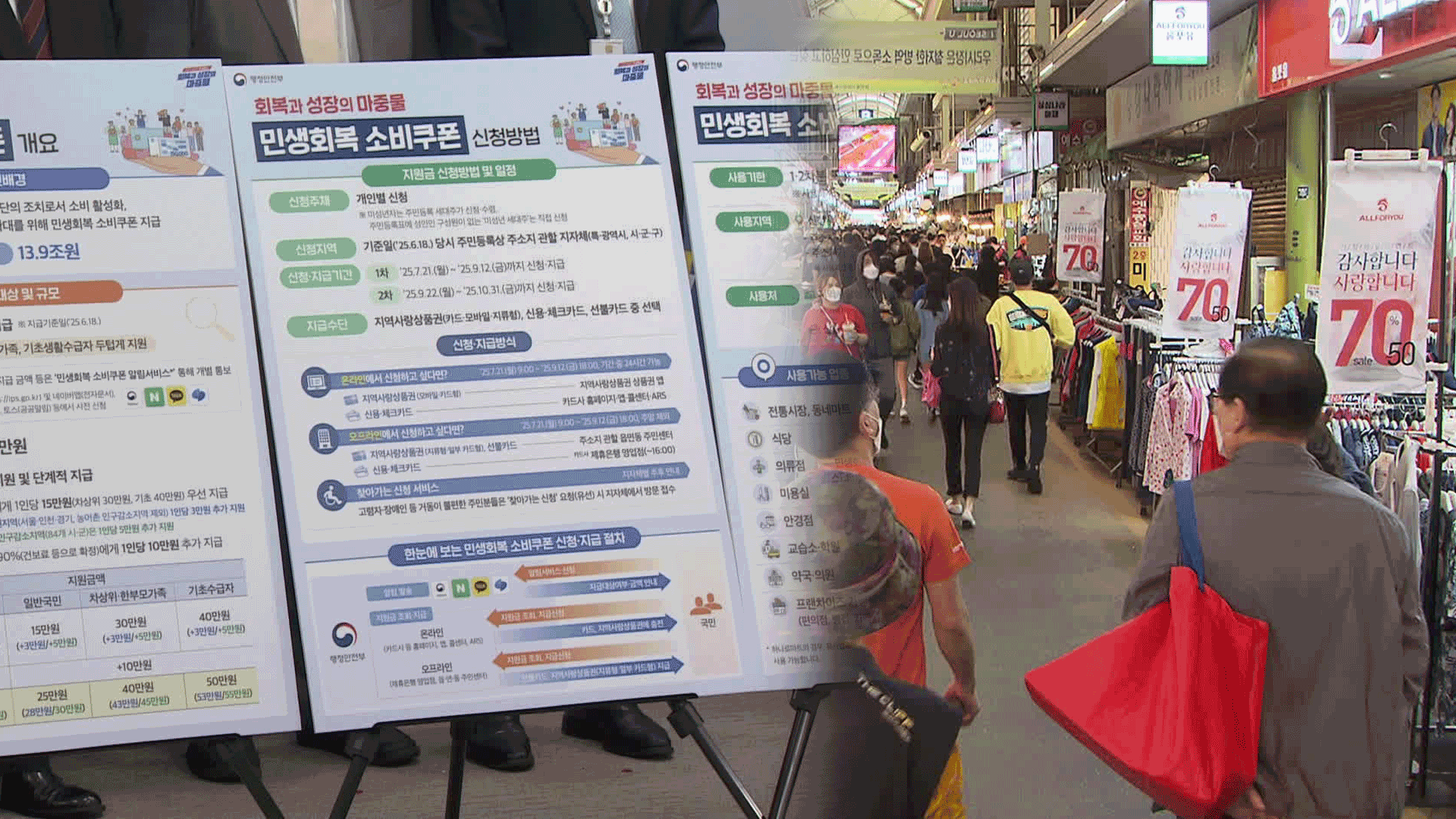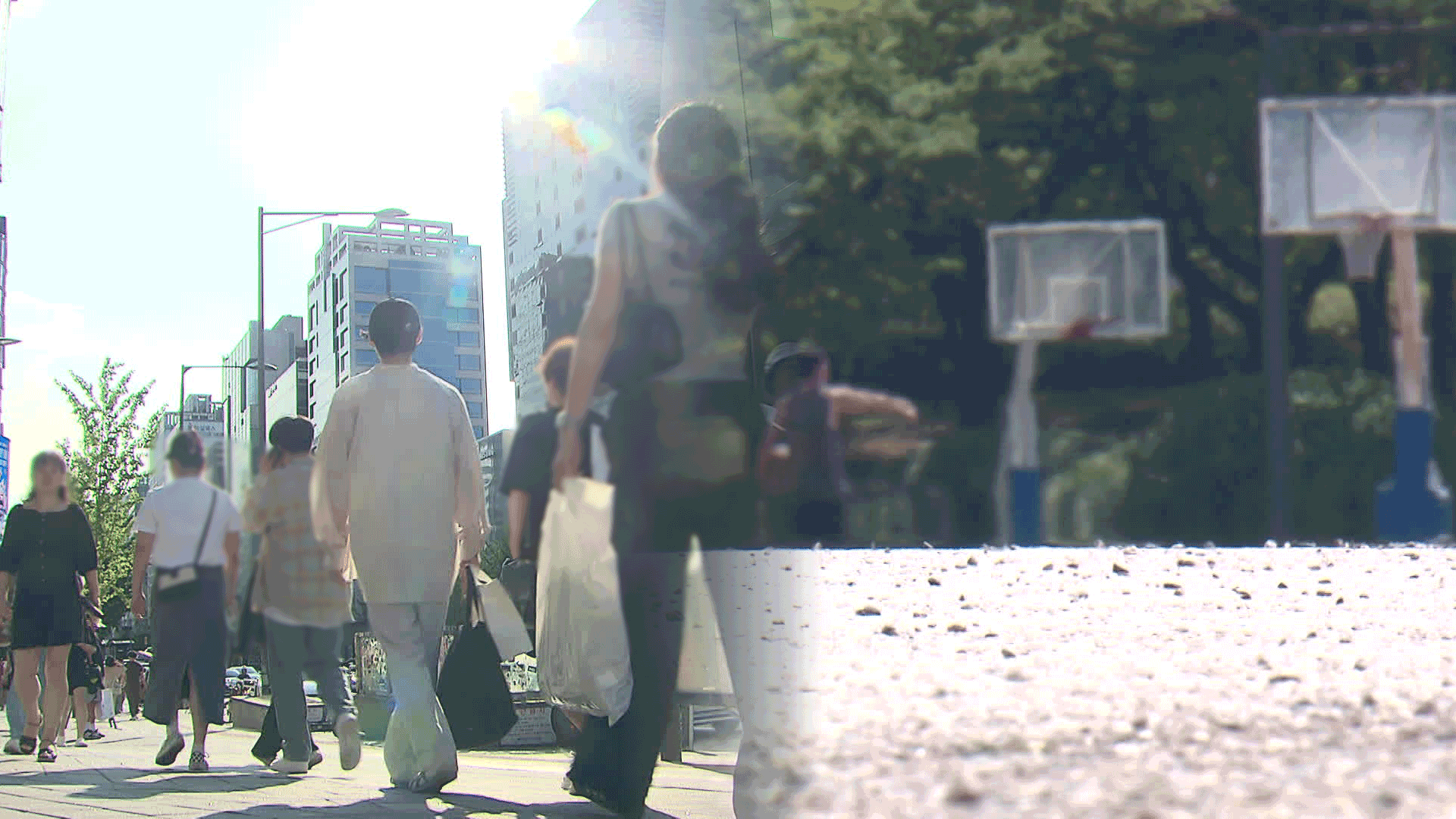[Anchor]
The won-dollar exchange rate has risen to around 1,400 won, and there are no signs of it falling.
Even looking at the long-term trends from 10 to 20 years, the value of the dollar continues to rise.
Despite the U.S. flooding the market with dollars, why does it keep getting stronger? First, reporter Kim Jin-hwa analyzes this.
[Report]
When has an apple ever been expensive? It gets more expensive when demand increases, like during the Lunar New Year or Chuseok, and it also gets expensive when supply decreases.
The same goes for the dollar.
When demand for dollars increases, it becomes more expensive, and even if fewer dollars are released, it still becomes more expensive.
But is there a shortage of dollars these days?
[Jerome Powell/Chairman of the U.S. Federal Reserve/Apr. 2020: "We acted forcefully to get our markets working again."]
At every major juncture, dollars have continued to be released.
In just the last four years, the amount of dollars released in the U.S. has increased by nearly 900 trillion won.
Since they have become so common, they should be cheaper...
But it's the opposite.
The dollar continues to become more expensive compared to major currencies.
Although supply has increased, demand has increased even more.
[Lee Seung-heon/Professor at Soongsil University Graduate School of Business/Former Deputy Governor of the Bank of Korea: "(U.S. companies') stock prices are rising, and they can safely pay interest and have trust, so people buy U.S. dollars. When the economy is good, the currency of that country inevitably becomes strong."]
As the U.S. economy is doing exceptionally well, everyone is buying U.S. assets.
In terms of GDP, the U.S. accounts for about a quarter of the world, but its stock market size is nearly half.
The U.S. also offers good interest rates.
Although they have recently decreased, U.S. interest rates are still higher than those of major countries.
With stock prices rising and interest rates high, who wouldn't want to exchange for dollars?
This is the background for the explosive demand for dollars.
However, up to this point, the conditions are the same for everyone.
There is a reason why dollars are more expensive in Korea.
[Yoon Sang-ha/Director of International Macroeconomic Policy at the Korea Institute for International Economic Policy: "The export economy was recovering, but recently there are signs of slowing down, and overall, as the economy declines, there is a part where the value of our currency is falling."]
On top of that, political instability has compounded the issue.
The opinion that it will not be easy to see the dollar at 1,300 won is becoming the 'mainstream'.
Opinions are now widespread that even a rate of 1,300 won per dollar will be hard to maintain.
Reporter Kim Ji-sook has investigated these changes in detail.
[Report]
It is now 10 AM, and I have come to get a cup of coffee.
["Could I have a warm Americano, please?"]
Some call it a "coffee transfusion," others call it "lifeblood."
I usually drink at least three cups a day, but these days I feel like I need to cut back.
This place also raised the price of Americano by 200 won last week.
The price of coffee beans has gone up, but it is also because of the dollar.
For 100% imported goods like coffee, even if the raw material prices remain the same, if the dollar value rises, domestic prices also increase.
This is the background for coffee shops raising prices since last year.
A parent with two children studying abroad in Canada is also sighing because of the dollar.
As the dollar rises, the Canadian dollar also increases, so even if they send the same 500,000 won, the amount they can use locally has changed in the first digit.
[Lee Bo-kyung/Parent of an overseas student: "We feel it when we exchange money. Given the situation, the kids are trying to increase their part-time jobs locally..."]
Nguyen, a Vietnamese who has been working in Korea for three years, feels similarly.
He wondered what the dollar had to do with Vietnam, but the issue is the weak won against the strong dollar.
[Nguyen Yuin/Vietnamese worker at a domestic company: "I have to send about 10-15% more so that my parents can receive the same amount, so I have cut back on drinks outside..."]
Is it only difficult because of the dollar?
There are also those who are happy thanks to the dollar.
As the dollar becomes more expensive, some are putting their spare money into dollar savings or deposits, allowing their money to grow without doing anything.
I will also consult about this.
["If I put 10 million won into a dollar deposit, how much can I expect to get back in a year?"]
["Assuming the dollar does not fall and rises further, and the exchange rate is 1,450 won when I sell, the interest you would receive would be 397,300 won..."]
Since U.S. interest rates are high, dollar deposits also have interest rates about 1% higher, and there is also the expectation of exchange rate gains.
Dollar insurance, where premiums are paid in dollars and payouts are also received in dollars at maturity, is also popular.
Last year, over 900 billion won worth was sold by the four major banks.
[Kim Hyun-ja/Shinhan Bank Deputy Branch Manager: "(The dollar value) has risen a lot now, and there are people who are watching closely to see if it will rise further."]
Thanks to the dollar, investment opportunities are also increasing.
Investing in U.S. market, or "Mijang," is now the default.
["When I see industries centered around Trump’s policies doing well, I think about the domestic stock market..."]
They are even studying professional exchange rate gains.
[Park Jae-woo/President of Sogang University Investment Club SRS: "Since semiconductors, shipbuilding, and power equipment can gain a more advantageous position in exports, if the dollar is strong, so we are studying more in that sector..."]
[KBS News9, Aug. 17, 1995: "The dollar value has skyrocketed unprecedentedly. Today, the exchange rate for 1 dollar is 781 won and 70 jeon..."]
There was a time when 700 won for 1 dollar was considered expensive, but now the 1,400 won range has become familiar.
This is the 'sense of generational change' created by the strong dollar.
This is Kim Ji-sook from KBS News.
The won-dollar exchange rate has risen to around 1,400 won, and there are no signs of it falling.
Even looking at the long-term trends from 10 to 20 years, the value of the dollar continues to rise.
Despite the U.S. flooding the market with dollars, why does it keep getting stronger? First, reporter Kim Jin-hwa analyzes this.
[Report]
When has an apple ever been expensive? It gets more expensive when demand increases, like during the Lunar New Year or Chuseok, and it also gets expensive when supply decreases.
The same goes for the dollar.
When demand for dollars increases, it becomes more expensive, and even if fewer dollars are released, it still becomes more expensive.
But is there a shortage of dollars these days?
[Jerome Powell/Chairman of the U.S. Federal Reserve/Apr. 2020: "We acted forcefully to get our markets working again."]
At every major juncture, dollars have continued to be released.
In just the last four years, the amount of dollars released in the U.S. has increased by nearly 900 trillion won.
Since they have become so common, they should be cheaper...
But it's the opposite.
The dollar continues to become more expensive compared to major currencies.
Although supply has increased, demand has increased even more.
[Lee Seung-heon/Professor at Soongsil University Graduate School of Business/Former Deputy Governor of the Bank of Korea: "(U.S. companies') stock prices are rising, and they can safely pay interest and have trust, so people buy U.S. dollars. When the economy is good, the currency of that country inevitably becomes strong."]
As the U.S. economy is doing exceptionally well, everyone is buying U.S. assets.
In terms of GDP, the U.S. accounts for about a quarter of the world, but its stock market size is nearly half.
The U.S. also offers good interest rates.
Although they have recently decreased, U.S. interest rates are still higher than those of major countries.
With stock prices rising and interest rates high, who wouldn't want to exchange for dollars?
This is the background for the explosive demand for dollars.
However, up to this point, the conditions are the same for everyone.
There is a reason why dollars are more expensive in Korea.
[Yoon Sang-ha/Director of International Macroeconomic Policy at the Korea Institute for International Economic Policy: "The export economy was recovering, but recently there are signs of slowing down, and overall, as the economy declines, there is a part where the value of our currency is falling."]
On top of that, political instability has compounded the issue.
The opinion that it will not be easy to see the dollar at 1,300 won is becoming the 'mainstream'.
Opinions are now widespread that even a rate of 1,300 won per dollar will be hard to maintain.
Reporter Kim Ji-sook has investigated these changes in detail.
[Report]
It is now 10 AM, and I have come to get a cup of coffee.
["Could I have a warm Americano, please?"]
Some call it a "coffee transfusion," others call it "lifeblood."
I usually drink at least three cups a day, but these days I feel like I need to cut back.
This place also raised the price of Americano by 200 won last week.
The price of coffee beans has gone up, but it is also because of the dollar.
For 100% imported goods like coffee, even if the raw material prices remain the same, if the dollar value rises, domestic prices also increase.
This is the background for coffee shops raising prices since last year.
A parent with two children studying abroad in Canada is also sighing because of the dollar.
As the dollar rises, the Canadian dollar also increases, so even if they send the same 500,000 won, the amount they can use locally has changed in the first digit.
[Lee Bo-kyung/Parent of an overseas student: "We feel it when we exchange money. Given the situation, the kids are trying to increase their part-time jobs locally..."]
Nguyen, a Vietnamese who has been working in Korea for three years, feels similarly.
He wondered what the dollar had to do with Vietnam, but the issue is the weak won against the strong dollar.
[Nguyen Yuin/Vietnamese worker at a domestic company: "I have to send about 10-15% more so that my parents can receive the same amount, so I have cut back on drinks outside..."]
Is it only difficult because of the dollar?
There are also those who are happy thanks to the dollar.
As the dollar becomes more expensive, some are putting their spare money into dollar savings or deposits, allowing their money to grow without doing anything.
I will also consult about this.
["If I put 10 million won into a dollar deposit, how much can I expect to get back in a year?"]
["Assuming the dollar does not fall and rises further, and the exchange rate is 1,450 won when I sell, the interest you would receive would be 397,300 won..."]
Since U.S. interest rates are high, dollar deposits also have interest rates about 1% higher, and there is also the expectation of exchange rate gains.
Dollar insurance, where premiums are paid in dollars and payouts are also received in dollars at maturity, is also popular.
Last year, over 900 billion won worth was sold by the four major banks.
[Kim Hyun-ja/Shinhan Bank Deputy Branch Manager: "(The dollar value) has risen a lot now, and there are people who are watching closely to see if it will rise further."]
Thanks to the dollar, investment opportunities are also increasing.
Investing in U.S. market, or "Mijang," is now the default.
["When I see industries centered around Trump’s policies doing well, I think about the domestic stock market..."]
They are even studying professional exchange rate gains.
[Park Jae-woo/President of Sogang University Investment Club SRS: "Since semiconductors, shipbuilding, and power equipment can gain a more advantageous position in exports, if the dollar is strong, so we are studying more in that sector..."]
[KBS News9, Aug. 17, 1995: "The dollar value has skyrocketed unprecedentedly. Today, the exchange rate for 1 dollar is 781 won and 70 jeon..."]
There was a time when 700 won for 1 dollar was considered expensive, but now the 1,400 won range has become familiar.
This is the 'sense of generational change' created by the strong dollar.
This is Kim Ji-sook from KBS News.
■ 제보하기
▷ 카카오톡 : 'KBS제보' 검색, 채널 추가
▷ 전화 : 02-781-1234, 4444
▷ 이메일 : kbs1234@kbs.co.kr
▷ 유튜브, 네이버, 카카오에서도 KBS뉴스를 구독해주세요!
- Strong dollar affects daily life
-
- 입력 2025-01-31 01:06:34

[Anchor]
The won-dollar exchange rate has risen to around 1,400 won, and there are no signs of it falling.
Even looking at the long-term trends from 10 to 20 years, the value of the dollar continues to rise.
Despite the U.S. flooding the market with dollars, why does it keep getting stronger? First, reporter Kim Jin-hwa analyzes this.
[Report]
When has an apple ever been expensive? It gets more expensive when demand increases, like during the Lunar New Year or Chuseok, and it also gets expensive when supply decreases.
The same goes for the dollar.
When demand for dollars increases, it becomes more expensive, and even if fewer dollars are released, it still becomes more expensive.
But is there a shortage of dollars these days?
[Jerome Powell/Chairman of the U.S. Federal Reserve/Apr. 2020: "We acted forcefully to get our markets working again."]
At every major juncture, dollars have continued to be released.
In just the last four years, the amount of dollars released in the U.S. has increased by nearly 900 trillion won.
Since they have become so common, they should be cheaper...
But it's the opposite.
The dollar continues to become more expensive compared to major currencies.
Although supply has increased, demand has increased even more.
[Lee Seung-heon/Professor at Soongsil University Graduate School of Business/Former Deputy Governor of the Bank of Korea: "(U.S. companies') stock prices are rising, and they can safely pay interest and have trust, so people buy U.S. dollars. When the economy is good, the currency of that country inevitably becomes strong."]
As the U.S. economy is doing exceptionally well, everyone is buying U.S. assets.
In terms of GDP, the U.S. accounts for about a quarter of the world, but its stock market size is nearly half.
The U.S. also offers good interest rates.
Although they have recently decreased, U.S. interest rates are still higher than those of major countries.
With stock prices rising and interest rates high, who wouldn't want to exchange for dollars?
This is the background for the explosive demand for dollars.
However, up to this point, the conditions are the same for everyone.
There is a reason why dollars are more expensive in Korea.
[Yoon Sang-ha/Director of International Macroeconomic Policy at the Korea Institute for International Economic Policy: "The export economy was recovering, but recently there are signs of slowing down, and overall, as the economy declines, there is a part where the value of our currency is falling."]
On top of that, political instability has compounded the issue.
The opinion that it will not be easy to see the dollar at 1,300 won is becoming the 'mainstream'.
Opinions are now widespread that even a rate of 1,300 won per dollar will be hard to maintain.
Reporter Kim Ji-sook has investigated these changes in detail.
[Report]
It is now 10 AM, and I have come to get a cup of coffee.
["Could I have a warm Americano, please?"]
Some call it a "coffee transfusion," others call it "lifeblood."
I usually drink at least three cups a day, but these days I feel like I need to cut back.
This place also raised the price of Americano by 200 won last week.
The price of coffee beans has gone up, but it is also because of the dollar.
For 100% imported goods like coffee, even if the raw material prices remain the same, if the dollar value rises, domestic prices also increase.
This is the background for coffee shops raising prices since last year.
A parent with two children studying abroad in Canada is also sighing because of the dollar.
As the dollar rises, the Canadian dollar also increases, so even if they send the same 500,000 won, the amount they can use locally has changed in the first digit.
[Lee Bo-kyung/Parent of an overseas student: "We feel it when we exchange money. Given the situation, the kids are trying to increase their part-time jobs locally..."]
Nguyen, a Vietnamese who has been working in Korea for three years, feels similarly.
He wondered what the dollar had to do with Vietnam, but the issue is the weak won against the strong dollar.
[Nguyen Yuin/Vietnamese worker at a domestic company: "I have to send about 10-15% more so that my parents can receive the same amount, so I have cut back on drinks outside..."]
Is it only difficult because of the dollar?
There are also those who are happy thanks to the dollar.
As the dollar becomes more expensive, some are putting their spare money into dollar savings or deposits, allowing their money to grow without doing anything.
I will also consult about this.
["If I put 10 million won into a dollar deposit, how much can I expect to get back in a year?"]
["Assuming the dollar does not fall and rises further, and the exchange rate is 1,450 won when I sell, the interest you would receive would be 397,300 won..."]
Since U.S. interest rates are high, dollar deposits also have interest rates about 1% higher, and there is also the expectation of exchange rate gains.
Dollar insurance, where premiums are paid in dollars and payouts are also received in dollars at maturity, is also popular.
Last year, over 900 billion won worth was sold by the four major banks.
[Kim Hyun-ja/Shinhan Bank Deputy Branch Manager: "(The dollar value) has risen a lot now, and there are people who are watching closely to see if it will rise further."]
Thanks to the dollar, investment opportunities are also increasing.
Investing in U.S. market, or "Mijang," is now the default.
["When I see industries centered around Trump’s policies doing well, I think about the domestic stock market..."]
They are even studying professional exchange rate gains.
[Park Jae-woo/President of Sogang University Investment Club SRS: "Since semiconductors, shipbuilding, and power equipment can gain a more advantageous position in exports, if the dollar is strong, so we are studying more in that sector..."]
[KBS News9, Aug. 17, 1995: "The dollar value has skyrocketed unprecedentedly. Today, the exchange rate for 1 dollar is 781 won and 70 jeon..."]
There was a time when 700 won for 1 dollar was considered expensive, but now the 1,400 won range has become familiar.
This is the 'sense of generational change' created by the strong dollar.
This is Kim Ji-sook from KBS News.
The won-dollar exchange rate has risen to around 1,400 won, and there are no signs of it falling.
Even looking at the long-term trends from 10 to 20 years, the value of the dollar continues to rise.
Despite the U.S. flooding the market with dollars, why does it keep getting stronger? First, reporter Kim Jin-hwa analyzes this.
[Report]
When has an apple ever been expensive? It gets more expensive when demand increases, like during the Lunar New Year or Chuseok, and it also gets expensive when supply decreases.
The same goes for the dollar.
When demand for dollars increases, it becomes more expensive, and even if fewer dollars are released, it still becomes more expensive.
But is there a shortage of dollars these days?
[Jerome Powell/Chairman of the U.S. Federal Reserve/Apr. 2020: "We acted forcefully to get our markets working again."]
At every major juncture, dollars have continued to be released.
In just the last four years, the amount of dollars released in the U.S. has increased by nearly 900 trillion won.
Since they have become so common, they should be cheaper...
But it's the opposite.
The dollar continues to become more expensive compared to major currencies.
Although supply has increased, demand has increased even more.
[Lee Seung-heon/Professor at Soongsil University Graduate School of Business/Former Deputy Governor of the Bank of Korea: "(U.S. companies') stock prices are rising, and they can safely pay interest and have trust, so people buy U.S. dollars. When the economy is good, the currency of that country inevitably becomes strong."]
As the U.S. economy is doing exceptionally well, everyone is buying U.S. assets.
In terms of GDP, the U.S. accounts for about a quarter of the world, but its stock market size is nearly half.
The U.S. also offers good interest rates.
Although they have recently decreased, U.S. interest rates are still higher than those of major countries.
With stock prices rising and interest rates high, who wouldn't want to exchange for dollars?
This is the background for the explosive demand for dollars.
However, up to this point, the conditions are the same for everyone.
There is a reason why dollars are more expensive in Korea.
[Yoon Sang-ha/Director of International Macroeconomic Policy at the Korea Institute for International Economic Policy: "The export economy was recovering, but recently there are signs of slowing down, and overall, as the economy declines, there is a part where the value of our currency is falling."]
On top of that, political instability has compounded the issue.
The opinion that it will not be easy to see the dollar at 1,300 won is becoming the 'mainstream'.
Opinions are now widespread that even a rate of 1,300 won per dollar will be hard to maintain.
Reporter Kim Ji-sook has investigated these changes in detail.
[Report]
It is now 10 AM, and I have come to get a cup of coffee.
["Could I have a warm Americano, please?"]
Some call it a "coffee transfusion," others call it "lifeblood."
I usually drink at least three cups a day, but these days I feel like I need to cut back.
This place also raised the price of Americano by 200 won last week.
The price of coffee beans has gone up, but it is also because of the dollar.
For 100% imported goods like coffee, even if the raw material prices remain the same, if the dollar value rises, domestic prices also increase.
This is the background for coffee shops raising prices since last year.
A parent with two children studying abroad in Canada is also sighing because of the dollar.
As the dollar rises, the Canadian dollar also increases, so even if they send the same 500,000 won, the amount they can use locally has changed in the first digit.
[Lee Bo-kyung/Parent of an overseas student: "We feel it when we exchange money. Given the situation, the kids are trying to increase their part-time jobs locally..."]
Nguyen, a Vietnamese who has been working in Korea for three years, feels similarly.
He wondered what the dollar had to do with Vietnam, but the issue is the weak won against the strong dollar.
[Nguyen Yuin/Vietnamese worker at a domestic company: "I have to send about 10-15% more so that my parents can receive the same amount, so I have cut back on drinks outside..."]
Is it only difficult because of the dollar?
There are also those who are happy thanks to the dollar.
As the dollar becomes more expensive, some are putting their spare money into dollar savings or deposits, allowing their money to grow without doing anything.
I will also consult about this.
["If I put 10 million won into a dollar deposit, how much can I expect to get back in a year?"]
["Assuming the dollar does not fall and rises further, and the exchange rate is 1,450 won when I sell, the interest you would receive would be 397,300 won..."]
Since U.S. interest rates are high, dollar deposits also have interest rates about 1% higher, and there is also the expectation of exchange rate gains.
Dollar insurance, where premiums are paid in dollars and payouts are also received in dollars at maturity, is also popular.
Last year, over 900 billion won worth was sold by the four major banks.
[Kim Hyun-ja/Shinhan Bank Deputy Branch Manager: "(The dollar value) has risen a lot now, and there are people who are watching closely to see if it will rise further."]
Thanks to the dollar, investment opportunities are also increasing.
Investing in U.S. market, or "Mijang," is now the default.
["When I see industries centered around Trump’s policies doing well, I think about the domestic stock market..."]
They are even studying professional exchange rate gains.
[Park Jae-woo/President of Sogang University Investment Club SRS: "Since semiconductors, shipbuilding, and power equipment can gain a more advantageous position in exports, if the dollar is strong, so we are studying more in that sector..."]
[KBS News9, Aug. 17, 1995: "The dollar value has skyrocketed unprecedentedly. Today, the exchange rate for 1 dollar is 781 won and 70 jeon..."]
There was a time when 700 won for 1 dollar was considered expensive, but now the 1,400 won range has become familiar.
This is the 'sense of generational change' created by the strong dollar.
This is Kim Ji-sook from KBS News.
-
-

김진화 기자 evolution@kbs.co.kr
김진화 기자의 기사 모음
-
이 기사가 좋으셨다면
-
좋아요
0
-
응원해요
0
-
후속 원해요
0















이 기사에 대한 의견을 남겨주세요.